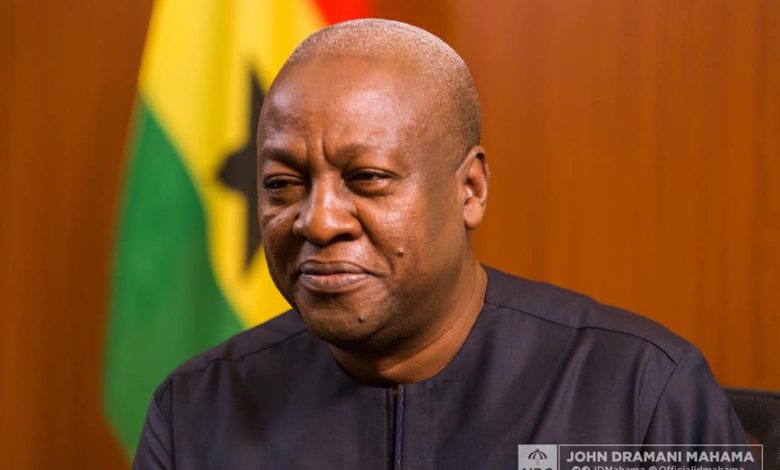
What Mahama said about homosexuals ‘coming out of hiding’
Source: www.ghanaweb.com
An old video of former President John Dramani Mahama when he was in office has gone viral following the brouhaha surrounding the approval of the Promotion of Human Sexual Rights and Family Values Bill (anti-gay bill) into law.
Leading figures of the ruling New Patriotic Party (NPP), including the Majority Chief Whip and Member of Parliament Nsawam Adoagyiri, Frank Annoh-Dompreh, have shared this video, making different inferences on it even though former President Mahama, the flagbearer of the opposition National Democratic Congress, has categorically stated that as a Christian, he is against homosexual activities.
Some are inferring that Mahama, in the video clip, which is from an interview he had at Yale in the United States, was urging homosexuals to freely live their lives.
But did Mahama say that?
In the said video, the former president was answering a question on why HIV/AIDs cases were on the rise in Ghana among homosexuals even though its prevalence was decreasing nationally.
Mahama explained that the disease was on the rise among homosexuals because they were not getting the needed treatment because of the fear of being stigmatised.
The question Mahama was asked:
Talking about stigma, the stigma attached to homosexuality is a major problem, I gather, in Ghana, because you have brought down the incidence of AIDS, but it has grown among this community of people. So, how do you hope to destigmatise this aspect of life?
Here is the former president’s response:
That’s a very, very important question, and that’s one of the areas that we are looking at. I mentioned it at a conference we had in New York, yesterday, that is a conference on HIV AIDS.
We have been successful in reducing the prevalence level of HIV /generally within our country. It’s gone from about 3.6% to 1.5% over the last ten years. But then, now, there is the category of men having sex with men. There’s a very strong cultural hostility to homosexuality in our society, and so often, people are not willing to own up to their sexual orientation.
And so, these people are normally underground. It’s difficult to identify who they are. It’s difficult to reach them with awareness; it’s difficult to reach them with treatment.
And so, we are trying to educate people to understand that we need to remove the stigma so that people can come out of hiding and be able to say, yeah, this is my sexual orientation; these are the problems I have. So that you can reach them with the necessary and appropriate interventions. For instance, we have no statistics as to how many people; men have sex with men. We don’t have any statistics.




